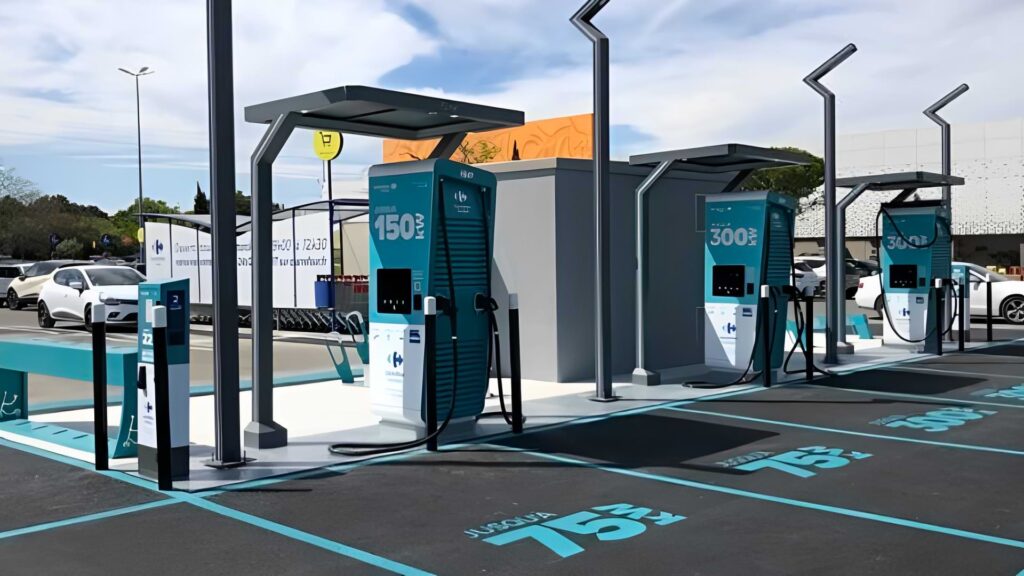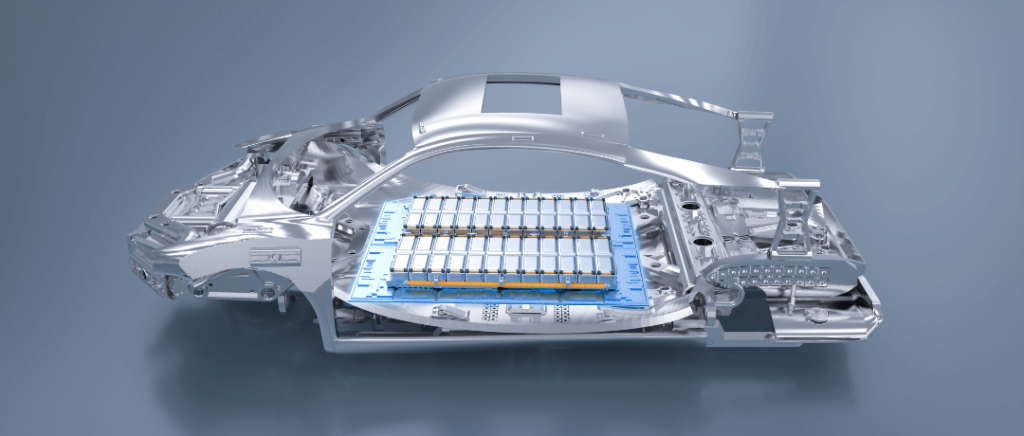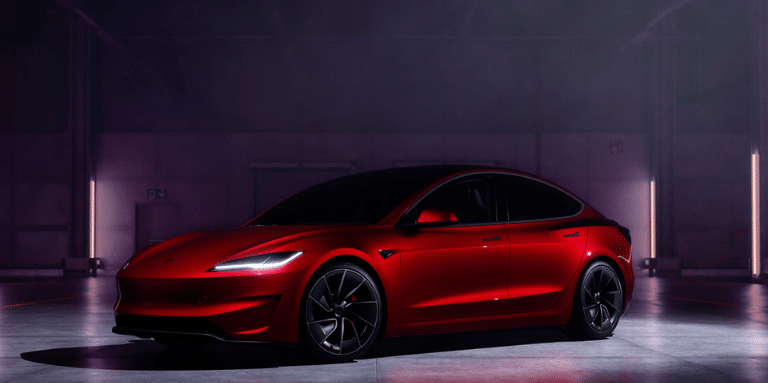L'Objectif 100 000 bornes - definition and hypermarkets good students in the installation of charging stations
By the end of 2020, according to Avere, there will be 30,000 charging points in France, a figure that represents around 1 charging point for every 10 electric cars. We therefore need to accelerate the rollout of charging points, and hypermarkets have a role to play in building a national network.
What is the "100,000 mile target"?
The 100,000-terminal objective is a target for the number of charging stations that has been set up by The Ministries of Ecological Transition and Transport, it aims to to mobilize players who could act to extend the network of charging stations in France, these players had been brought together in November 2020 so that volunteers could sign the charter for this objective, thus committing themselves to participate in this construction of a national network of charging stations.
Who are the signatories?
Among the signatories are Leclerc, Lidl and Système U, all of whom have already announced concrete measures to help achieve the target set by the government. Leclerc will install 5,000 charging stations (i.e. 10,000 charging points), while Système U has announced the installation of 2,000 charging stations. As for Lidl, they have announced that all their new stores will be equipped with charging stations, with a target of 900 new stores by 2021, and that their stations will be powered by green electricity, mostly via solar panels installed on the roofs of its supermarkets. All three are very good students!
Hypermarkets that have not signed up to the 100,000 terminal target
Because the distribution network isn't limited to just three retail groups, let's take a look at the other hypermarket chains that haven't signed up to the 100,000 milestone charter.
Those who install bollards anyway
Although not all retailers have signed up to the 100,000 charging points target, many are taking action and have set up projects to install electric vehicle charging points in their parking lots.
Starting with Leclerc, the group already has 823 charging points spread across 231 Leclerc hypermarket parking lots, and plans to install 5,000 new charging stations by 2022 and a further 10,000 by 2025, enough to encourage electric mobility throughout the country! Carrefour, for its part, has announced the installation of 2,000 charging stations by 2023, 56% of them fast-charging, a good point. Nevertheless, the group has some catching up to do, as it currently has only 70 charging points on its network. Casino, for its part, thanks to a partnership with Meridiam, plans to equip 80 of its hypermarkets with charging points by 2021, including charging points for slow, fast and ultra-fast charging.
Auchan lags further behind, with 105 charging stations installed in its hypermarket parking lots, and no announced targets for the installation of new charging stations, despite a partnership with Nissan for existing charging stations.
Hypermarkets with few or no charging stations
While the majority of our competitors are following the electric mobility wave, some hypermarket and supermarket groups are still lagging behind.
Auchan, for example, has only 105 charging stations installed in its hypermarket parking lots, and has not announced any targets for the installation of new charging stations, despite a partnership with Nissan for current charging stations. Cora has communicated little or nothing about the charging stations available in its hypermarket parking lots, and has not announced any targets, nor has Aldi.
The advantages and limitations of supermarket charging stations.
Hypermarket charging stations can be a good way of recharging your vehicle quickly and efficiently while you're out shopping, but they do have their limitations. Here's a quick look at the advantages and limitations of these infrastructures.
Benefits
For customers :
- Practice
Recharging your vehicle while you're out shopping is practical, because you don't have to wait for your vehicle to recharge, while you're busy.
- Free or at cost
It all depends on the group, but most hypermarket recharging points are currently free or at cost, which means that the hypermarket will not make a profit on the service.
- Ultra-fast recharging
This point doesn't apply to all hypermarkets, as we'll see in the limits just below, but if you're lucky enough to have a hypermarket near you that offers ultra-fast charging, it's a real advantage. Thanks to these ultra-fast charging stations, you can fully recharge your vehicle in just 15 minutes.
For hypermarkets
- An extra service for customers to enhance their appeal
From side hypermarkets, providing charging stations is an additional service offered to customers, who can therefore choose a hypermarket equipped with charging stations rather than one without.
- A commitment to the future
Encouraging electro-mobility means encouraging a cleaner, more environmentally-friendly world.
Limits
For customers
- Slow charging stations
A simple figure: 40 minutes is the average time we spend shopping, yet some chain stores continue to install slow recharging stations, which take around 1h30 to fully recharge the vehicle... Whereas fast recharging stations allow you to reach 80% in just 30 minutes, a much more appropriate choice. So it's hit or miss that your usual hypermarket will offer a slow, fast or even ultra-fast charging point! Unless you decide to change hypermarkets and head for a competitor offering better-quality charging stations... All bets are off!
- Not enough recharging points
Again, this depends on the infrastructure, but it can happen that some infrastructures don't have enough recharging points and that they are all taken quite often. In this case, make sure you have enough battery or look for another place to recharge your vehicle.
- Incorrect directions / non-existent tools
Linked to the previous point, the non-existence of a mobile application for checking available charging points or an interactive map is a problem for some, but others are intelligently developing their network, like Leclerc, which has a special mobile application for its charging points.
Hypermarket with recharging point, which one to choose?
A customer spends an average of just 40 minutes in a hypermarket, so it's essential to install charging stations that can provide a substantial recharge in a short space of time.
To do this, you can choose from several charging solutions:
- accelerated charging via a 22kw charging station, which will give your customers arange of between 100 and 150km in 1 hour.
- rapid recharging via a 50kw to 350kw charging station that will give your customers a 200km range in 1 hour, or even a full recharge in around 15 minutes for the most powerful charging stations.
Installing a slightly more powerful recharging station wouldn't do much good, because your customers won't be spending several hours on the spot, so they'd gain very little range while recharging.
The price of a charging station
- For a charging station 22kw with two charging points, you'll pay around €4,500.
- For a charging station 30kw with two charging points, you'll pay at least €7,000.
- For a charging station 60kw with two charging points cost around €20,000
- For a charging station 120/180kw with two charging points, you'll pay between €32,000 and €49,000.
Would you like to install a charging station?

How can I be listed as a hypermarket with kiosks?
Now that all your charging points are installed and you're ready to welcome your first electric vehicles, it's time to let them know that you have charging points!
There are several ways to do this:
- Google Maps: The world's largest mapping service, you can use this to indicate on your Google page that you have charging stations, so that electric vehicle owners can be aware of them.
- Tesla's Destination Charging: this is Tesla's website, listing all the charging points for Tesla users.
- ChargeMap: another mapping service, combined with a social network to help electric vehicle users identify charging stations in Europe.
- Your group's website/application: of course, you'll need to display this information on your retail chain's website or application. Leclerc, for example, has its own application!
Conclusion
Installing a recharging point in your hypermarket parking lot can only be beneficial to you, as it will enable you to stay ahead of your competitors while benefiting from subsidies!
Need advice? Call one of our experts and let us help you get started!





